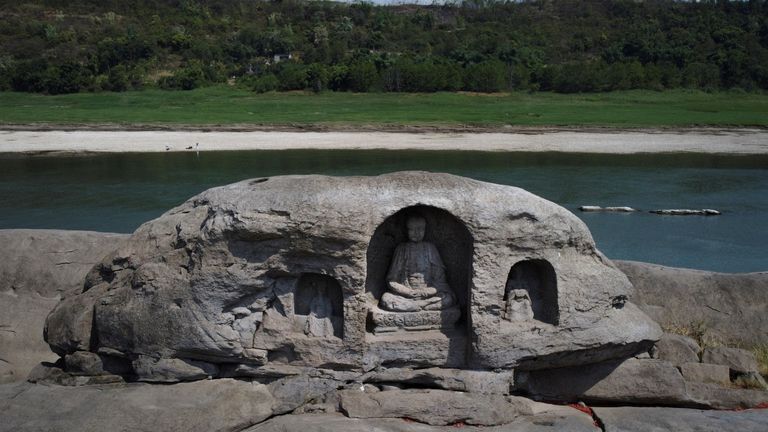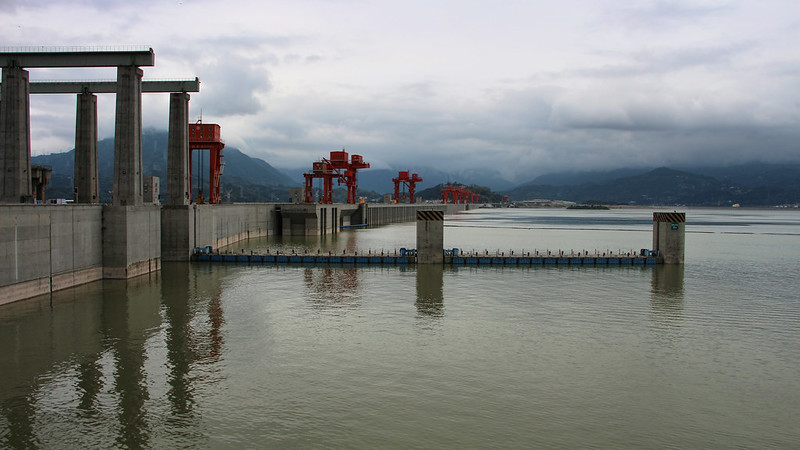President Bolsonaro has warned of voter fraud and suggested he would dispute a loss in October’s vote, but the political establishment believes he lacks support to stage a coup.

By Jack Nicas and André Spigariol
Jack Nicas and André Spigariol, correspondents in Brazil, spoke to more than 35 judges, generals, diplomats and government officials to understand the risk to Brazil’s election.
Aug. 22, 2022
BRASÍLIA — A simple but alarming question is dominating political discourse in Brazil with just six weeks left until national elections: Will President Jair Bolsonaro accept the results?
For months, Mr. Bolsonaro has attacked Brazil’s electronic voting machines as rife with fraud — despite virtually no evidence — and Brazil’s election officials as aligned against him. He has suggested that he would dispute any loss unless changes are made in election procedures. He has enlisted Brazil’s military in his battle. And he has told his tens of millions of supporters to prepare for a fight.
“If need be,” he said in a recent speech, “we will go to war.”
With its vote on Oct. 2, Brazil is now at the forefront of the growing global threats to democracy, fueled by populist leaders, extremism, highly polarized electorates and internet disinformation. The world’s fourth-largest democracy is bracing for the possibility of its president refusing to step down because of fraud allegations that could be difficult to disprove.
Yet, according to interviews with more than 35 Bolsonaro administration officials, military generals, federal judges, election authorities, members of Congress and foreign diplomats, the people in power in Brazil feel confident that while Mr. Bolsonaro could dispute the election’s results, he lacks the institutional support to stage a successful coup.
Brazil’s last coup, in 1964, led to a brutal 21-year military dictatorship. “The middle class supported it. Business people supported it. The press supported it. And the U.S. supported it,” said Luís Robert Barroso, a Supreme Court justice and Brazil’s former elections chief. “Well, none of these players support a coup now.”

Instead, the officials worry about lasting damage to Brazil’s democratic institutions — polls show a fifth of the country has lost faith in the election systems — and about violence in the streets. Mr. Bolsonaro’s claims of fraud and potential refusal to accept a loss echo those of his ally Donald J. Trump, and Brazilian officials repeatedly cited the Jan. 6, 2021, attack on the U.S. Capitol as an example of what could happen.
“How do we have any control over this?” Flávio Bolsonaro, a senator and Mr. Bolsonaro’s son, said in an interview with the Brazilian newspaper Estadão in reference to potential violence. In the United States, he said, “people followed the problems in the electoral system, were outraged and did what they did. There was no command from President Trump, and there will be no command from President Bolsonaro.”
Last week, more than one million Brazilians, including former presidents, top academics, lawyers and pop stars, signed a letter defending the country’s voting systems. Brazil’s top business groups also released a similar letter.
On Tuesday, at an event with nearly every major Brazilian political figure present, another Supreme Court justice, Alexandre de Moraes, took office as the nation’s new elections chief and warned that he would punish attacks on the electoral process.
“Freedom of expression is not freedom to destroy democracy, to destroy institutions,” he said. His reaction, he added, “will be swift, firm and relentless.”
The crowd stood and applauded. Mr. Bolsonaro sat and scowled.
Mr. Bolsonaro, whose representatives declined requests for an interview, has said that he is trying to protect Brazil’s democracy by strengthening its voting systems.
Among the officials interviewed, there was broad disagreement over whether the right-wing president was driven by genuine concern about fraud or just fear of losing. Mr. Bolsonaro has consistently trailed former President Luiz Inácio Lula da Silva, a leftist, in opinion surveys; if no one wins a majority of the vote on Oct. 2, a runoff is scheduled for Oct. 30.

Yet there are increasing hopes for a smooth transition of power if Mr. Bolsonaro loses — because he now appears open to a truce.
His allies, including top officials in the armed forces, are about to begin negotiations with Mr. de Moraes about changes to Brazil’s election system designed to address the president’s security critiques, according to three federal judges and one senior administration official close to the planned talks, who spoke on the condition of anonymity because they are confidential.
The idea is that Mr. Bolsonaro would back off his attacks on the voting machines, these people said, if election officials agreed to some changes requested by Brazil’s military.
“I have full confidence in Brazil’s election system. That also doesn’t mean it’s infallible,” said Ciro Nogueira, Mr. Bolsonaro’s chief of staff. “I’m sure, as the president says, the people will have their say.” And on Saturday, Mr. Bolsonaro seemed to suggest at a rally that he would accept the results of the election.
Yet Mr. Bolsonaro has made similar comments in the past and agreed to similar a truce last year — and then continued his attacks.
Those attacks have had an effect. Since June, Brazilian Twitter users have mentioned Brazil’s voting machines more than inflation or social-welfare programs in relation to the election, and roughly as much as gas prices, which have been a major point of political debate, according to an analysis by researchers at the Getúlio Vargas Foundation Communications School requested by The New York Times.

A poll last month showed that 32 percent of Brazilians trusted the voting machines “a little” and 20 percent did not trust them at all.
At the same time that many of Mr. Bolsonaro’s supporters are convinced that the vote can be rigged, many more also have guns. Mr. Bolsonaro made it much easier for civilians to purchase firearms under looser restrictions for hunters, and now more than 670,000 Brazilians own guns under such rules, 10 times as many as five years ago.
Inside his administration, Mr. Bolsonaro has been increasingly pulled between two factions.
One side has encouraged the president to stop attacking the voting machines because they believe the issue is unpopular with the more moderate voters he needs to win over and because Brazil’s economy is rebounding, helping his chances of re-election, according to two senior advisers to the president.
They said the other group, led by former military generals, has fed the president misinformation and urged him to keep warning of potential fraud.
Election officials last year invited the military to join a committee to improve the election systems. The military suggested a series of changes, but election officials said they could not be implemented in time for October’s vote.
But military leaders are still pushing for one specific change: for the voting machines’ integrity tests to happen with real voters, instead of in simulations.

The military is concerned that a hacker could implant malicious software in the voting machines that would recognize simulations and stay dormant during such tests, allowing it to evade detection.
An election-security expert said such a hack is conceivable but unlikely.
Mr. de Moraes, the new elections chief, has signaled that he would be open to changes in the voting systems, though what might be achievable by Oct. 2 is unclear.
Mr. Bolsonaro has long been at odds with Mr. de Moraes, who has led investigations into allegations of disinformation and leaks of classified material that implicate the president and his allies. Mr. Bolsonaro has criticized Mr. de Moraes as politically motivated, and said at a rally last year that he would no longer abide by his rulings, a statement he later walked back.
So Mr. de Moraes’s ascent to lead Brazil’s electoral court was expected to further aggravate tensions.
But in recent weeks, he and Mr. Bolsonaro have begun chatting on WhatsApp in an effort to mend their relationship, according to a person close to the president. When Mr. de Moraes hand-delivered an invitation to his inauguration as elections chief this month, Mr. Bolsonaro gave him a jersey for Corinthians, Mr. de Moraes’s favorite soccer team. (Corinthians is the archrival of Mr. Bolsonaro’s favorite squad, Palmeiras.)
With tensions running high, Brazil’s leadership decided to make Mr. de Moraes’s inauguration on Tuesday — usually a procedural event — a demonstration of the strength of the Brazilian democracy.

In a modernist, underground amphitheater, the heads of the Brazilian Congress, Supreme Court and military joined five of Brazil’s six living presidents for the ceremony, including Mr. Bolsonaro and Mr. Lula da Silva.
Cameras zoomed in on Mr. Bolsonaro next to Mr. de Moraes at the head table, a rare sight. They whispered to one another, sometimes chuckling, throughout the event. Then Mr. de Moraes got up for his speech. Before the event, he had warned Mr. Bolsonaro that he wouldn’t enjoy it, according to a person close to the president.
“We are the only democracy in the world that calculates and publishes election results on the same day, with agility, security, competence and transparency,” he said. “Democracy is not an easy, exact or predictable path. But it’s the only path.”
The room gave him a 40-second standing ovation. Mr. Bolsonaro was among the first to stop applauding.
Afterward, the two men posed for a photo. They did not smile.









